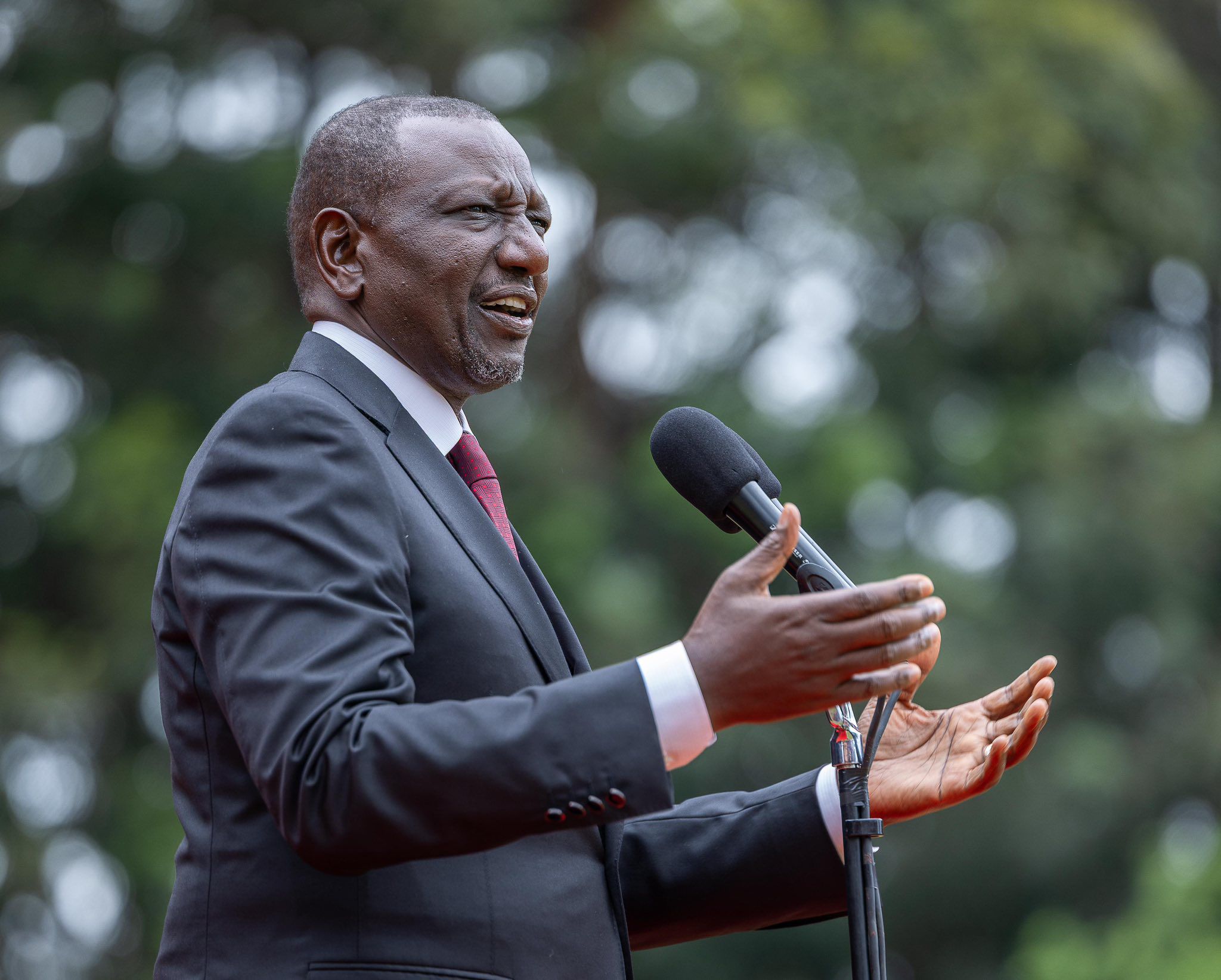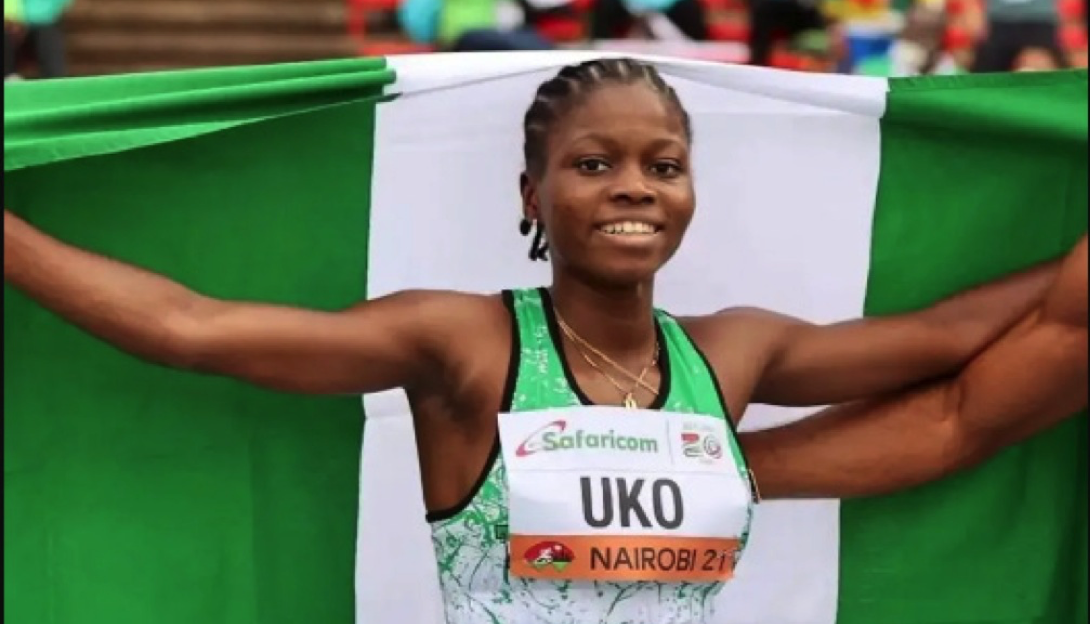Imaobong Nse Uko One More Too Many - THISDAYLIVE
The Nigeria athletics community is still grappling with the news that Nigerian sprinter, Favour Ofili, had recently submitted documents to the Athletics Integrity Unit, AIU, to change her allegiance to Turkey over alleged neglect and administrative failures by the Athletics Federation of Nigeria, AFN, and the Nigeria Olympics Committee, NOC, as Nigerian athletes’ performance has been underwhelming in international meets in recent times, aside from Tobi Amusan, who has been enjoying good times at different meets around the globe. Disappointing as that may look, but for an athlete to enhance her system with banned substances is unacceptable, as it not only brings shame to the personality involved but the country’s name is also brought to disrepute. That was the plight of Imaobong Nse Uko after becoming the 10th Nigerian athlete to be banned for doping
Nigerian athletics community was during the week dealt with a heavy blow after the Athletics Integrity Unit (AIU) officially announced the ban of one of Nigeria’s quarter milers, 20-year- old Imaobong Nse Uko, for two years for dope violation.
In the updated list of athletes sanctioned for dope related offences published on July 1, 2025, Uko’s ban was retroactively effected from June 5, 2024, the date of her infraction, making her the 10th Nigerian athlete on that list of athletes banned for dope.
Although the AIU failed to list the exact offence for which Uko is being punished, she was provisionally suspended from the track from July 7, 2024 with all the results of the races she clocked from that date all now annulled.
She will not be eligible to return to the track until July 23, 2026.
Uko at just 17, shot into limelight when she won the 400m gold at the U20 World Athletics Championships in Nairobi, Kenya with a Personal Best of 51.55secs.
The following year, she went on to win the National Sports Festival 400m gold medal. She defended the quarter-mile gold at the 2021 NSF and followed up qualifying to run in Nigeria’s 4x400m relay at the 2020 Olympic Games in Tokyo in 2021.
Uko is one of Nigeria’s brightest hope to step into the shoes vacated by the likes of Falilat Ogunkoya and Fatima Yusuf.
In that updated list of athletes serving suspensions for various infractions, Imaobong Uko is the 10th Nigerian athlete so banned.
Former shotput record holder, Vivian Chukwuemeka and Henry Azike top the list with life bans followed by Blessing Okagbare who is serving 10 years suspension. Glory Okon, Stephen Eloji, Ada Princes Bright and Yinka Ajaiyi are all serving four years each for similar dope infractions.
Though Nigeria’s growing list is cause for alarm, the issue of doping extends far beyond its borders.
The AIU’s global sanctions report highlights athletes from Kenya and India as leading violators, pointing to systemic weaknesses in the global anti-doping framework—especially in countries where oversight and enforcement are underfunded or compromised.
This global pattern reveals the urgent need for anti-doping reform, greater investment in testing and athlete education, and structural improvements to ensure integrity in sport.
For Nigerian athletics, the challenge is multi-faceted: implement strict testing regimes, educate athletes from a young age, and ensure clear accountability mechanisms at all levels of governance. Without these, the risk of further reputational damage remains high.
As for Uko, her fall from grace may yet serve as a valuable lesson. Redemption is possible, but only if Nigerian sports stakeholders confront the hard truths about doping, address the root causes, and commit to a cultureof clean competition.
Until then, the nation’s dream of global track and field glory remains tainted by the specter of banned substances.
Meanwhile, the Athletics Federation of Nigeria (AFN) has denied allegation that it has been docile in communicating the dangers and risks of doping violations and rules to athletes.
This coming after Uko was handed a 2-year ban by the Integrity Unit of World Athletics for doping violations.
The AFN has insisted that it has been diligent in communicating anti-doping rules to athletes through its doping department headed by Professor Ken Anugweje.
The federation emphasized that athlete discipline is crucial and will continue to spread anti-doping principles to athletes.
It has carried out series of out-of-competition tests on elite athletes and warned them about career preservation through discipline.
The AFN said it regretted Uko’s ban and will assist her recovery until she serves out her ban.
The federation however advised athletes to properly cross-check vitamins and recommendations to avoid endangering their careers.
Speaking on the development, President of the AFN, Chief Tonobok Okowa, insisted that the federation under his watch will not tolerate any athlete taking substances to enhance his or her performance on the track and field.
“There is no room for cheats and athletes who are not willing to follow the rules in the Federation,” began Okowa who recently secured another term of four years as AFN President.
He recalled that before the last Olympic Games in Paris, “AFN funded 60 per cent of the drug tests carried out on our athletes. This goes to show how serious on dope matters in this Federation,” Okowa stressed yesterday.
The AFN president insisted further that the advocacy for zero-tolerance for dope in track and field will continue at all competitions organised by the federation.
“At all major competitions on the home front we carry out our drug advocacy campaign to the athletes, coaches and technical officials involved in the business. The last of such seminars took place during the just concluded National Sports Festival (NSF), tagged Gateway Games 2024 in Abeokuta, Ogun State,” Okowa recalled.
While regretting the ban slammed on Imaobong Uko, the AFN President the federation will continue to communicate anti-doping rules to athletes through its Dope Department headed by Anugweje.











